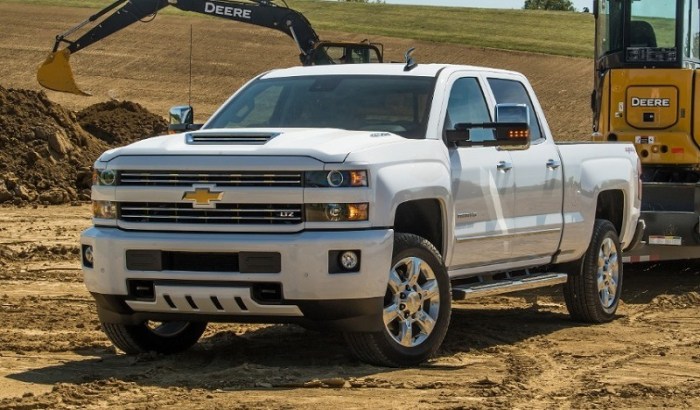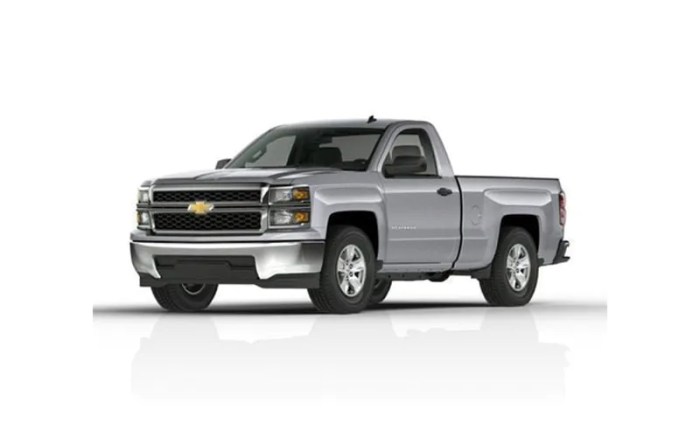How reliable is Chevy? This question plagues the minds of many car shoppers. To unravel the answer, we embark on a comprehensive journey, delving into reliability ratings, common issues, customer satisfaction, and more. Join us as we uncover the truth behind Chevy’s reliability and help you make an informed decision.
With a legacy spanning over a century, Chevrolet has earned a reputation for producing vehicles that are both dependable and durable. However, like any automaker, Chevy has had its fair share of reliability challenges. In this article, we’ll explore the factors that influence Chevy’s reliability, examining both its strengths and weaknesses.
Reliability Ratings
Chevy’s reliability ratings have been generally favorable, with the brand consistently ranking above average in industry studies. According to J.D. Power’s 2023 Vehicle Dependability Study, Chevy ranked 7th out of 32 brands, with an average of 135 problems per 100 vehicles.
Consumer Reports also gives Chevy a positive reliability rating. In its 2023 Annual Auto Reliability Survey, Chevy ranked 11th out of 24 brands, with an average score of 73 out of 100. This score is based on the frequency and severity of repairs reported by Consumer Reports members.
Factors Considered in Reliability Ratings
Several factors are considered when determining a vehicle’s reliability rating. These include:
- Frequency of repairs: How often a vehicle experiences problems that require repairs.
- Severity of issues: How serious the problems are, ranging from minor annoyances to major breakdowns.
- Cost of repairs: How expensive it is to fix the problems.
- Owner satisfaction: How satisfied owners are with the overall reliability of their vehicles.
Common Issues

Chevy vehicles, like any other car brand, have reported issues from owners. These problems can range from minor inconveniences to more serious concerns. Identifying these common issues can help potential buyers make informed decisions and current owners address potential problems.Commonly
reported issues include:
Electrical Problems, How reliable is chevy
Electrical issues are a frequent concern among Chevy owners. These problems can manifest in various ways, such as faulty wiring, battery issues, or malfunctioning electrical components. Some specific models and years affected by electrical problems include the 2014-2017 Silverado, the 2016-2018 Cruze, and the 2015-2019 Tahoe.
Customer Satisfaction
Customer satisfaction is a crucial indicator of a brand’s reliability. In the case of Chevrolet, customer feedback plays a significant role in assessing its dependability.Various customer surveys and reviews provide valuable insights into Chevy’s reliability. According to the J.D. Power 2023 Vehicle Dependability Study, Chevrolet ranked 16th out of 32 brands in overall dependability, with an average of 182 problems per 100 vehicles.
This indicates that Chevy vehicles generally experience a moderate number of issues compared to other brands.
Factors Contributing to Customer Satisfaction
Several factors contribute to customer satisfaction with Chevy’s reliability:
Ease of Repair
Chevy vehicles are generally known for being relatively easy to repair. This is due to the availability of parts, well-documented service manuals, and a wide network of authorized repair centers.
Cost of Ownership
Chevrolet offers a range of vehicles with varying maintenance and repair costs. While some models may have higher maintenance expenses, others are more affordable to maintain. The overall cost of ownership can vary depending on factors such as the vehicle’s age, mileage, and driving habits.
Comparison to Competitors
Chevy’s reliability is comparable to other major automakers in the same segment. However, there are certain areas where Chevy excels or falls short.
According to J.D. Power’s 2023 Vehicle Dependability Study, Chevrolet ranked 14th out of 32 brands in terms of overall dependability. This is slightly below the industry average.
You might be curious about how reliable Chevy is. To get a comprehensive answer, check out this article: are chevrolets reliable . It provides valuable insights into Chevy’s reliability, helping you make an informed decision. After reading the article, you’ll have a better understanding of Chevy’s dependability.
Reliability by Model
Chevy’s reliability varies by model. Some models, such as the Corvette and Silverado, have consistently received high reliability ratings. Others, such as the Cruze and Equinox, have had more reliability issues.
If you’re wondering if Chevys are reliable, you might want to know about the Chevrolet Sonic. Are Chevrolet Sonic good cars ? The answer is a resounding yes! Sonics are known for their dependability, and they’ve consistently ranked highly in reliability surveys.
So, if you’re looking for a reliable Chevy, the Sonic is a great option.
Comparison to Specific Competitors
When compared to specific competitors, Chevy’s reliability is mixed.
Chevy has a reputation for reliability, but did you know that they discontinued the Camaro? Check out this article to learn more about the Camaro’s discontinuation and other interesting facts about Chevy’s reliability.
- Chevy’s reliability is generally comparable to Ford and Toyota.
- Chevy’s reliability is slightly better than Dodge and Chrysler.
- Chevy’s reliability is slightly worse than Honda and Hyundai.
Maintenance and Repair Costs
Chevy vehicles generally have maintenance and repair costs that are comparable to industry averages. However, factors such as the specific model, age, and driving habits can influence these expenses.
On average, Chevy owners can expect to pay around $500 to $1,000 per year for maintenance and repairs. This includes routine services like oil changes, tire rotations, and brake inspections, as well as more substantial repairs like transmission or engine work.
Factors Influencing Maintenance Expenses
- Model:Different Chevy models have varying maintenance and repair costs. For example, a compact car like the Chevy Spark will typically have lower expenses than a full-size SUV like the Chevy Tahoe.
- Age:As vehicles age, they naturally require more maintenance and repairs. This is because components wear out over time and need to be replaced.
- Driving Habits:Aggressive driving, frequent towing, and driving in harsh conditions can all contribute to higher maintenance and repair costs.
Warranty Coverage
Chevy’s warranty coverage provides peace of mind to its customers, protecting them against potential reliability issues and unexpected repair costs.The Basic Limited Warranty offers 3 years or 36,000 miles of coverage for most components of the vehicle, including the engine, transmission, and drivetrain.
Chevy vehicles have a solid reputation for reliability, with many models earning high ratings from consumer review sites. If you’re considering a compact and fuel-efficient option, you may wonder, are Chevrolet Sparks good cars ? Reviews suggest that the Spark offers a reliable and affordable driving experience, making it a great choice for city commuters and budget-conscious buyers.
While exploring the reliability of Chevy vehicles, be sure to research specific models and read owner reviews to make an informed decision.
The Powertrain Limited Warranty extends this coverage to 5 years or 60,000 miles, providing additional protection for critical components.
Corrosion Protection
Chevy also offers a Corrosion Perforation Limited Warranty, which covers rust-through damage to body panels for up to 6 years or 100,000 miles. This warranty ensures that your vehicle remains protected from the elements, even in harsh conditions.
Comparison to Competitors
Compared to other automakers, Chevy’s warranty coverage is competitive. Many competitors offer similar terms and conditions, but Chevy’s extended Powertrain Limited Warranty and Corrosion Protection Limited Warranty provide added value and peace of mind.
Owner Testimonials

To provide a well-rounded perspective on Chevy’s reliability, let’s delve into real-world experiences shared by actual owners. These testimonials offer valuable insights into the pros and cons of owning a Chevy, helping you make an informed decision.
Chevy has a reputation for reliability, but you might wonder if that extends to GMC. Well, here’s a fun fact: Chevrolet and GMC are actually under the same parent company . So, while they have distinct identities, you can expect a similar level of reliability from both brands.
Whether you’re considering a Chevy or a GMC, you can rest assured that you’re getting a vehicle built to last.
While experiences vary, we’ll explore both positive and negative feedback to present a balanced view of Chevy’s reliability.
Positive Experiences
- “My Chevy Silverado has been a workhorse for me. It’s never let me down, even when hauling heavy loads or driving through rough terrain.” – John, a contractor
- “I’ve had my Chevy Equinox for five years now, and it’s been incredibly reliable. I’ve only had to do routine maintenance, and it’s always been there for me when I need it.” – Mary, a stay-at-home mom
Negative Experiences
- “I had a Chevy Malibu that had constant transmission problems. I had to take it to the shop multiple times, and it ended up costing me a lot of money.” – David, a college student
- “My Chevy Cruze had electrical issues that were never fully resolved. It was frustrating to have a car that I couldn’t always count on.” – Sarah, a nurse
Historical Trends: How Reliable Is Chevy
Over the past few decades, Chevy’s reliability has fluctuated, with both ups and downs. In the 1990s, Chevy faced challenges with reliability, particularly with models like the Cavalier and Lumina. However, in the early 2000s, Chevy made significant improvements in reliability, with models like the Malibu and Impala earning high ratings.In
recent years, Chevy’s reliability has remained relatively stable, with some models performing better than others. The Equinox and Traverse have consistently received good reliability ratings, while the Cruze and Sonic have had some reliability issues.
Factors Contributing to Changes in Reliability
Several factors have contributed to the changes in Chevy’s reliability over time. These include:
- Changes in design and engineering
- Improvements in manufacturing processes
- The use of higher-quality materials
- Increased focus on customer feedback
- Advancements in technology
Impact on Resale Value
Chevy’s reliability has a significant impact on the resale value of its vehicles. Vehicles with a reputation for reliability tend to retain their value better than those with a history of problems. This is because buyers are willing to pay more for a vehicle that they know will be reliable and cost-effective to own in the long run.
According to a study by iSeeCars, Chevy vehicles have an average depreciation rate of 37.5% after three years, which is better than the industry average of 39.1%. This means that Chevy vehicles retain more of their value over time than many other brands.
Long-term Ownership Costs
The reliability of a vehicle also has a direct impact on long-term ownership costs. Vehicles that are reliable require less maintenance and repairs, which can save owners thousands of dollars over the life of the vehicle. In addition, reliable vehicles are less likely to break down, which can save owners the inconvenience and expense of being stranded on the side of the road.
Conclusive Thoughts
In conclusion, Chevy’s reliability is a multifaceted issue with both positive and negative aspects. While the brand has consistently received high marks for its overall dependability, it has also faced criticism for certain common problems. By understanding the factors that affect Chevy’s reliability, you can make an informed decision about whether a Chevy vehicle is right for you.
1 thought on “How Reliable is Chevy: A Comprehensive Analysis”